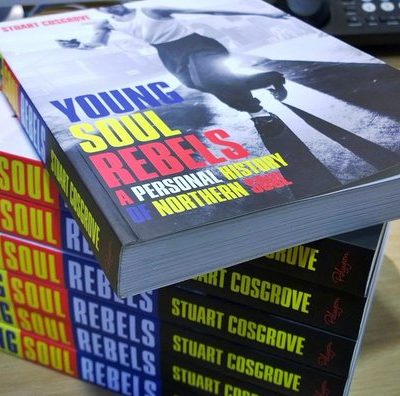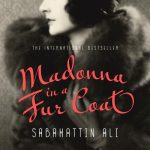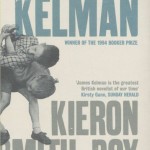Stuart Cosgrove’s latest is an eloquent mix of social history and musical retrospective, writes Alistair Braidwood
Support independent, non-corporate media.
Donate here!

Last year, we recorded a podcast with Stuart Cosgrove about his book Detroit ’67 and during a fascinating discussion he mentioned his next musical biography would be a history of his beloved Northern Soul. Now it’s here, it’s called Young Soul Rebels, and as we suspected all along it’s so much more than that simple description would suggest. What you want from a music biography is passion, encyclopaedic knowledge and a fresh perspective. Young Soul Rebels delivers on all fronts as Cosgrove relates an often autobiographical and at times shockingly personal tale of how this music and the people who he shared it with changed his life, made it better, and offered comfort at those times when little could be found elsewhere. This may suggest a book which is self-indulgent, but you couldn’t be further from the truth. Cosgrove is brutally honest about his life, all aspects of it, and that includes how he feels about music, people and politics. Starting with a Maya Angelou quote about Independence to open Chapter One, he rightly never separates the three. While the music is the memorable and evocative soundtrack to the book, it is the story of people and places which bring it alive. This is so much more than ‘A Guide To Northern Soul’, and, although there is music criticism in evidence, and a chapter on ‘Why Northern Soul Records Are Rare’, for the collectors, it is as much social history as musical retrospective.
Some of the tales told are bleak, often horrific. This musical movement was played out mainly in the north of England in the ’70s, and there are characters, themes and events shared with David Peace’s Red Riding quartet of novels. While there is plenty of humour and joy on show, when added to police crackdowns and a wide selection of prejudices, and with perhaps the most arresting opening sentence that you’ll read this year, the reader is left in no doubt that the phrase, “It’s grim up North” was an apt one for the time. You begin to realise why this uplifting music was so important to so many.
The supporting cast in this particular story are an unusual group, from Jayne Torvill and Diana Dors, through infamous and controversial Manchester policemen James Anderton and John Stalker, to Jimmy Savile, Denis Nilson and Peter Sutcliffe. But these names and accompanying events are used to put what was happening in the Northern Soul clubs into perspective, and it’s Cosgrove’s lesser known characters who make the greatest impact. Scene legends, such as dancer Steve Caesar, DJs John Vincent and The Mighty Bub, and vinyl entrepreneur Pete Lawson are as important to this story as the musicians and the records. There’s a camaraderie and sense of belonging which Cosgrove relies on to an extent, and which is shared by all such movements.
Cosgrove writes as he broadcasts – eloquently, forcefully and at pace, and as such he makes persuasive and forceful arguments. For instance, when people talk of industrial music and the north of England they usually think of Cabaret Voltaire, Joy Division, early Human League and Heaven 17. Cosgrove makes the claim, similar to one he makes in Detroit ’67, that soul music can lay claim to being the music of industry, forged in the American heartland of Philadelphia, Memphis, Chicago and Detroit itself but equally identified with in their equivalents in the UK.
Similarly, he believes, with good cause, that the Northern Soul Music scene is the great forgotten musical movement of British cultural history of the 20th century. Think of all the recent musical histories you have read or watched. They tend to go Rock ‘n’ Roll – Beatles – Psychedelia – Prog/Metal- Punk – New Wave/Romantic – Clubbing, etc. Often Northern Soul doesn’t even rate a footnote, or if it does it’s a brief description of all-nighters and talc. But, if you know a soul music fan, they’re as obsessive as any you will find, maybe more so. I have a theory that they like the elitism and kudos that such relative anonymity provides, but Young Soul Rebels goes at least some way to righting that historical wrong and it’s this uncovering of a movement which has been written about all too rarely that explains a large part of the book’s appeal.
It is, in the end, the music which brings everyone together and Cosgrove’s encyclopaedic knowledge is that of an obsessive. He is unapologetic about this, and is clear about what makes a good Northern Soul record, and a great one. This makes Young Soul Rebels an education for any music fan, and you’ll find yourself searching the net to create your own soundtrack as you read -with the wheat separated from the chaff by our sure-footed guide. On the recommendation of the man himself, here’s Sam Dees with ‘Lonely For You Baby’, followed by the wondrous ‘Love Ain’t No Love’ by Florence:
If you have a music fan in your life, then I would suggest this book is the perfect gift. If they are a soul fan, then it’s a must. Anyone who has ever pored over liner notes, obsessed over b-sides, searched out limited editions and rarities, or cued hours for tickets or entry will recognise themselves at least in part on the page, no matter what their musical tastes. Stuart Cosgrove is here to remind you that while music may not be a matter of life and death (and there are poignant reminders of that in Young Soul Rebels) it certainly makes the former worth living.
Review republished by kind permission of the very fine http://scotswhayhae.com/









